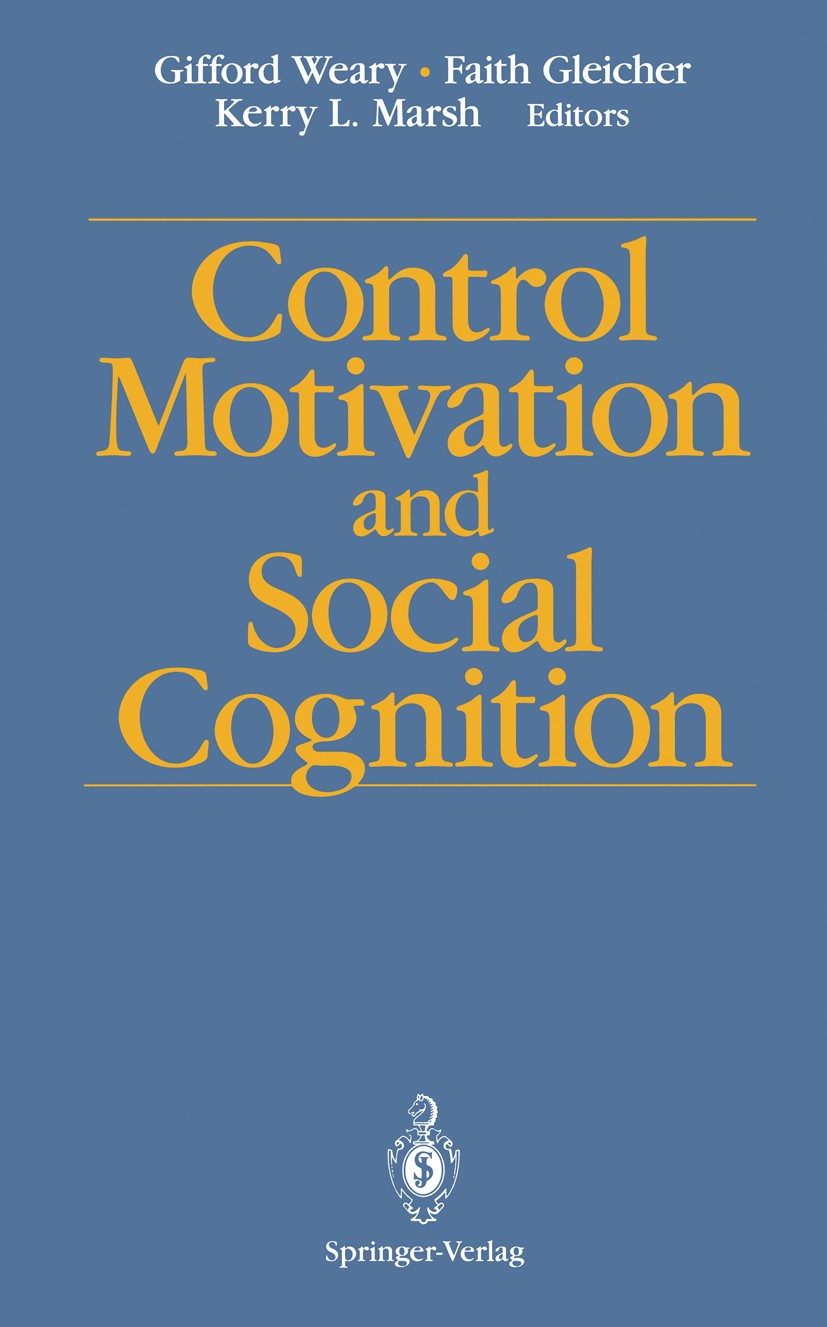| 书目名称 | Control Motivation and Social Cognition | | 编辑 | Gifford Weary,Faith Gleicher,Kerry L. Marsh | | 视频video | http://file.papertrans.cn/238/237252/237252.mp4 | | 图书封面 |  | | 描述 | Over the past two decades theorists and researchers have given increasing attention to the effects, both beneficial and harmful, of various control related motivations and beliefs. People‘s notions of how much personal control they have or desire to have over important events in their lives have been used to explain a host of performance and adaptational outcomes, including motivational and performance deficits associated with learned helplessness (Abramson, Seligman, & Teasdale, 1978) and depression (Abramson, Metalsky, & Alloy, 1989), adaptation to aging (Baltes & Baltes, 1986; Rodin, 1986), cardiovascular disease (Matthews, 1982), cancer (Sklar & Anisman, 1979), increased reports of physical symptoms (Pennebaker, 1982), enhanced learning (Savage, Perlmutter, & Monty, 1979), achievement-related behaviors (Dweck & Licht, 1980; Ryckman, 1979), and post abortion adjustment (Mueller & Major, 1989). The notion that control motivation plays a fundamental role in a variety of basic, social psychological processes also has a long historical tradition. A number of theorists (Heider, 1958; Jones & Davis, 1965; Kelley, 1967), for example, have suggested that causal inferences arise from a | | 出版日期 | Book 1993 | | 关键词 | Depression; Kognition; Motivation; Sozialpsychologie; anatomy; attribution; cognition; perception; personali | | 版次 | 1 | | doi | https://doi.org/10.1007/978-1-4613-8309-3 | | isbn_softcover | 978-1-4613-8311-6 | | isbn_ebook | 978-1-4613-8309-3 | | copyright | Springer-Verlag New York, Inc. 1993 |
The information of publication is updating

|
|
 |Archiver|手机版|小黑屋|
派博传思国际
( 京公网安备110108008328)
GMT+8, 2026-2-9 20:50
|Archiver|手机版|小黑屋|
派博传思国际
( 京公网安备110108008328)
GMT+8, 2026-2-9 20:50


